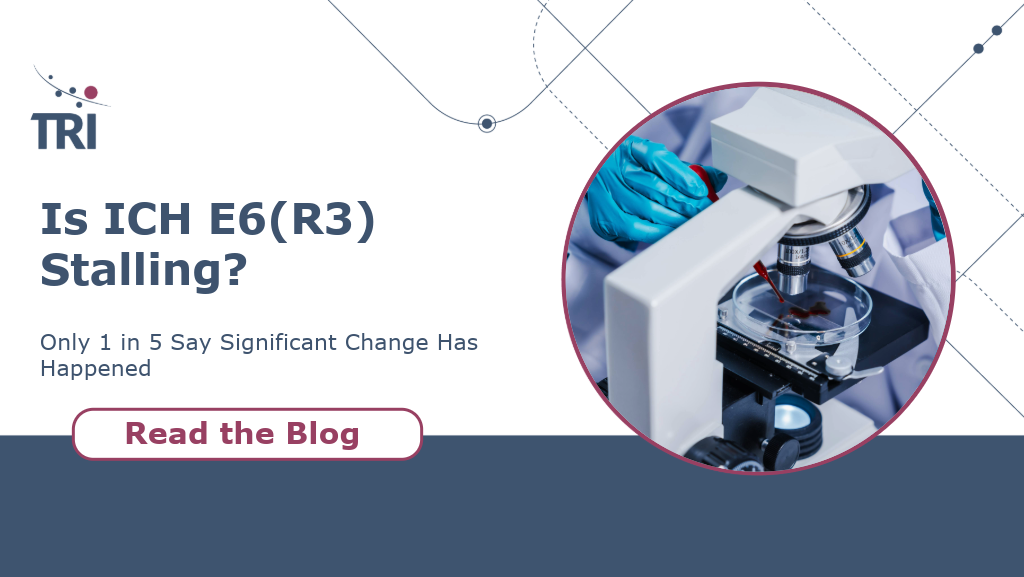Is ICH E6(R3) Stalling?

Only 1 in 5 Say Significant Change Has Happened
When the ICH E6(R3) guidance was finalized, it was hailed as a game-changer for clinical research, ushering in a new era of risk-based approaches, Quality by Design (QbD), and data governance. As clinical trials evolve, centralized monitoring and risk-based strategies are becoming essential to meet ICH E6(R3) expectations.
Yet, the latest Avoca State of the Industry Report reveals a sobering reality: only 19% of organizations report “significant” change so far.
Awareness Is High, But Action Is Slow
The industry clearly understands the importance of ICH E6(R3). In fact, 87% of respondents are now familiar with the guidance, a 31-point jump from 2024. However, familiarity hasn’t translated into full-scale adoption. While 63% report at least some change, most organizations remain in the early stages, reviewing processes rather than implementing systemic transformation.
Stakeholders agree the guidance will have a major impact, three-quarters expect moderate to significant changes in how trials are designed and conducted. But the areas that matter most: risk-based approaches, QbD, and data governance, are also the hardest to operationalize. Risk-based principles, in particular, remain poorly understood, requiring education and a cultural shift across organizations.
What’s Holding the Industry Back?
Several factors explain the slow progress. The guidance itself introduces ambiguity, with terms like “proportionality” and “fit for purpose” leaving room for interpretation. And then there’s the human factor, half of respondents believe ICH E6(R3) will increase site workload, particularly around oversight and training.
As one sponsor put it:
“Technology has advanced much faster than humans… There is much to figure out before implementing a technology, including validation and training.”
The Catalyst for Real Change
Risk-Based Quality Management (RBQM) is central to making ICH E6(R3) work in practice, especially in modern clinical trials where centralized monitoring ensures real-time oversight and data integrity. Done well, RBQM embeds quality early and enhances data integrity, all while reducing unnecessary burden on sites and participants.
This is where OPRA makes the difference. OPRA operationalizes RBQM principles by delivering real-time risk assessment and automated monitoring strategies aligned with ICH E6(R3). Instead of defaulting to outdated 100% SDV, OPRA enables sponsors and CROs to focus on critical-to-quality factors, ensuring compliance while improving efficiency and reducing costs.
How Do We Accelerate Implementation?
The path forward starts with education, but technology is the real enabler. OPRA provides the fit-for-purpose solution that ICH E6(R3) demands. It supports structured change management with built-in workflows, dashboards, and analytics that make adoption practical and measurable.
The Bottom Line
ICH E6(R3) offers a clear path to higher quality trials, but only if the industry moves beyond incremental change. With just one in five organizations reporting significant progress, the time to act is now. OPRA isn’t just RBQM technology, it’s the key to unlocking the full potential of ICH E6(R3).
